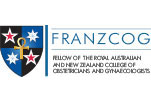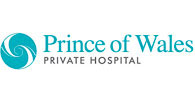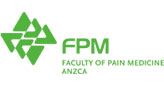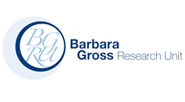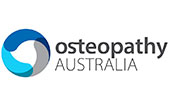What is reproductive medicine?
There are a range of options out there to help with all manner of reproductive concerns, from contraception methods to hereditary conditions to fertility treatments.
Our friendly team of experts can help you navigate the options to find the solution that’s right for you, regardless of your individual circumstances.
We can help with:
- Choosing a contraception method
- Fertility assessments, including tubal ultrasound, ovulation monitoring and laparoscopy
- Hormonal problems
- Intercourse issues
What conditions can reproductive medicine treat?
Drawing on current research and using the latest treatment methods, we can offer safe, effective and innovative treatment for women. If you suffer from a condition that has previously been difficult to treat, we may be able to help.
We can provide advice and/or treatment for the following:
Contraception
- Contraceptive pills
- Mirena® intrauterine device
- Female fallopian tube blockage techniques
Fibroids, endometriosis, damaged tubes
- Medical options
- Surgical options
- New technologies
Hormonal problems
- Polycystic ovary syndrome (PCOS)
- Absence of periods
- Early menopause
- Difficult menopause
- Late onset congenital adrenal hyperplasia (CAH)
- Premenstrual Dysphoric Disorder (PMDD)
Intercourse issues
- Painful sex
- Inability to have sex
Herbal Medicines
In addition to providing traditional medication to help relieve your symptoms, we can also prescribe some tried and tested herbal medicines. Associate Professor John Eden has been researching herbal medicines for over 20 years.
We understand that not all herbal medicines are created equal. When selecting an herbal medicine there are three aspects to consider:
- Quality control: Is it well made? Is each dose the same? How were the herbal components extracted? Are there any contaminants present?
- Safety: Could this product hurt me in some way?
- Efficacy: Does this product work better than a placebo or some other comparator?
Over the years, we’ve experimented with many different herbal medicines and found the following clinically tested products to be effective (though you should always discuss with a doctor before starting any new medications):
Remifemin®
- Good for: Menopause symptoms such as relieving hot sweats and flushes and minimising mood swings.
- Dosage: One or two pills twice a day
- Things you should know: It’s not oestrogenic so it’s safe for women who shouldn’t be exposed to oestrogen (e.g. after breast cancer). It can occasionally cause nausea. Rarely, there have been case-reports of severe liver problems associated with Remifemin® usage but as yet it’s unclear if the herb is the cause.
Premular®
- Good for: PMS symptoms, especially mood swings and breast pain.
- Dosage: 1 tablet a day, throughout the whole month
- Things you should know: It’s generally very safe and will not interact with ‘brain drugs’ such as antidepressants (unlike St John’s Wort). Can be taken alone or in combination with 50-100mg of vitamin B6 daily. You can visit the Flordis website for more details.
Iberogast®
- Good for: IBS symptoms
- Dosage: 20 drops in water three times a day before or with meals
- Things you should know: You can visit the Flordis website for more details.
Remotiv®
- Good for: Mild stress and anxiety
- Dosage: 1 tablet morning and evening. It usually starts to work within two weeks of starting treatment and takes about six weeks to achieve the full effect.
- Things you should know: It contains very low levels of hyperforin, a component in St John’s Wort that can interact with some other drugs. Side effects include mild nausea. You can visit the Flordis website for more details.
What to expect on your first consultation
Your experience will vary dramatically depending on the issue you wish to discuss. However, for almost all consultations it is helpful if you can bring the following:
- A referral from your doctor
- A valid Medicare card
- Any results from previous tests e.g. blood tests results, pap smear results, ultrasound results
- A list of medications you are currently taking
If you have a specific enquiry for our WHRIA specialists
Click HereHelpful resources
If you’d like more information about herbal remedies, browse our website and health information fact sheets below:
- Managing heavy bleeding
- Menopause after breast cancer
- Managing hot flushes
- Premature menopause
- The menopause consultation
- Managing PMS and PMDD
- Depression, anxiety, sleep and menopause
- Body idential hormones compared to bioidentical hormones
- Male hormones as a treatment option for women


